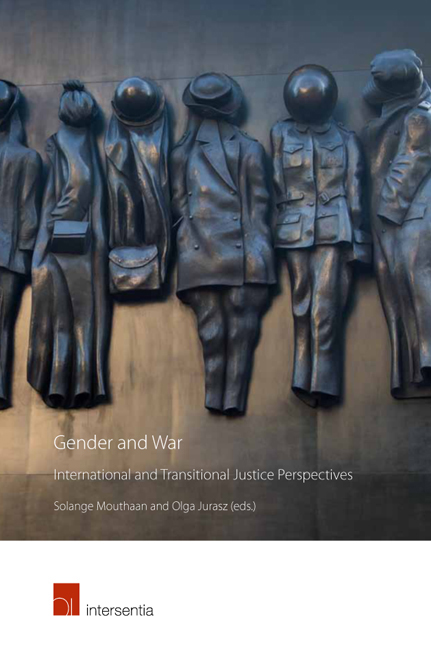Book contents
- Frontmatter
- Contents
- List of Cases
- List of Abbreviations
- List of Contributors
- Introduction
- PART I WOMEN'S INVOLVEMENT IN ARMED CONFLICT
- PART II MEN AND CHILDREN'S EXPERIENCES OF ARMED CONFLICT
- PART III GENDERED EXPERIENCES OF INTERNATIONAL CRIMINAL JUSTICE
- PART IV GENDERED EXPERIENCES OF TRANSITIONAL JUSTICE
- PART V CONCLUSIONS
- Conclusions
- About the Editors
Conclusions
from PART V - CONCLUSIONS
Published online by Cambridge University Press: 30 March 2019
- Frontmatter
- Contents
- List of Cases
- List of Abbreviations
- List of Contributors
- Introduction
- PART I WOMEN'S INVOLVEMENT IN ARMED CONFLICT
- PART II MEN AND CHILDREN'S EXPERIENCES OF ARMED CONFLICT
- PART III GENDERED EXPERIENCES OF INTERNATIONAL CRIMINAL JUSTICE
- PART IV GENDERED EXPERIENCES OF TRANSITIONAL JUSTICE
- PART V CONCLUSIONS
- Conclusions
- About the Editors
Summary
INTRODUCTION
The perspectives represented in this volume highlight some of the most recent developments and debates concerning international and transitional justice responses to addressing gendered realities and consequences of armed conflict. These include, but are not limited to, the involvement of children, especially girls, in modern conflicts and their exclusion from transitional justice processes; pursuits of accountability for CRSV at international and domestic levels; as well as the growing (albeit slowly) recognition of the need for transformative and gender-sensitive reparations.
But first and foremost, this study is a testament to the significant changes to the ways in which we have begun to understand, conceptualise and critique the complex relationships between gender, war and peace. The academic as well as public understanding of these issues has significantly evolved over the past three decades. When the war in the Former Yugoslavia broke out in 1991, the ‘new wars’ fuelled by the competing ethnic, religious and national interests became the reality. Soon after, in 1994, the world woke up to the horrors of mass scale killings and violence during the Rwandan Genocide. Violations of human rights and humanitarian law taking place both in the Former Yugoslavia and in Rwanda, have also revealed the highly gendered nature of such violations, especially in the form of mass-scale sexual violence. While today we focus on critiquing how conflict-related sexual violence (CRSV) is prosecuted by international criminal courts and tribunals, at the time of these atrocities it was far from common to criminalise conflict-related rape, not to mention other forms of sexual and gender-based harms, such as forced marriage, sexual enslavement or sexualised torture. Back in the early 1990s, a significant degree of international feminist activism as well as feminist academic scholarship calling for immediate recognition of rape and other forms of CRSV as tools of warfare as well as for ending impunity for such acts contributed to the momentous shift in not only legal categorisations but also in public perception of these acts.
- Type
- Chapter
- Information
- Gender and WarInternational and Transitional Justice Perspectives, pp. 355 - 360Publisher: IntersentiaPrint publication year: 2019



